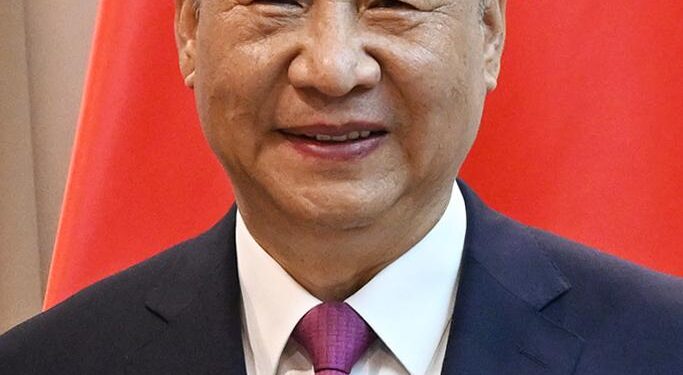In a significant diplomatic effort to ease longstanding tensions between two of the world’s most populous nations, Chinese President Xi Jinping and Indian Prime Minister Narendra Modi convened in Tianjin for a high-stakes meeting aimed at resolving ongoing border disputes. This encounter comes at a critical juncture as both nations seek to stabilize their relationship amidst rising geopolitical challenges and a complex regional landscape. As Xi and Modi pledged to address their differences through dialogue and cooperation, the outcome of their discussions could have far-reaching implications for regional security, economic collaboration, and the broader dynamics of Asia.
Xi and Modi Commit to Dialogue Amid Ongoing Border Disputes
In a significant meeting held in Tianjin, Chinese President Xi Jinping and Indian Prime Minister Narendra Modi underscored their mutual commitment to resolve long-standing border disputes that have historically strained relations between the two nations. Both leaders acknowledged the importance of dialogue in addressing this contentious issue, emphasizing that peaceful resolution is crucial not only for their countries but also for regional stability. The meeting took place against a backdrop of heightened tensions along the Line of Actual Control (LAC), prompting a renewed focus on diplomatic channels to foster understanding and cooperation.
During their discussions, Xi and Modi outlined a framework for future engagement, which includes:
- Enhanced Communication: Regular meetings between military officials to prevent misunderstandings.
- Confidence-building Measures: Initiatives aimed at reducing military presence in sensitive border areas.
- Joint Development Projects: Collaborative efforts in infrastructure and economic development near border regions.
Both leaders expressed optimism that through concerted dialogue, the historic differences could be transformed into opportunities for growth and partnership, paving the way for a more harmonious coexistence between two of Asia’s largest nations.
Strategic Cooperation: Implications for Regional Stability and Economic Growth
In a significant diplomatic move, leaders of two of Asia’s largest economies, President Xi Jinping of China and Prime Minister Narendra Modi of India, have pledged to resolve their longstanding border disputes during their recent meeting in Tianjin. This commitment reflects a broader trend in regional diplomacy that emphasizes cooperation over conflict. By prioritizing dialogue, both nations aim to stabilize their border regions, which have historically been flashpoints for military tensions. The implications of this cooperation extend beyond mere political rhetoric; they signal a potential thawing in bilateral relations that could pave the way for enhanced economic collaboration.
The prospects for economic growth in the region are promising, as a stable relationship could lead to significant investment opportunities and increased trade between China and India. Some potential benefits include:
- Infrastructure Development: Joint projects could improve connectivity, facilitating trade routes between the two countries.
- Trade Expansion: Removing barriers could enhance bilateral trade, currently hindered by political tensions.
- Regional Stability: A cooperative stance may encourage other nations in the region to pursue similar diplomatic engagements.
To better illustrate the potential economic benefits of cooperation, the following table highlights key areas of trade and investment:
| Sector | China’s Investment (in billion USD) | India’s Export Potential (in billion USD) |
|---|---|---|
| Information Technology | 10 | 8 |
| Manufacturing | 15 | 6 |
| Renewable Energy | 12 | 5 |
Ultimately, the resolution of border differences carries the potential to not only stabilize the region but also unlock economic prospects that benefit both nations and inspire confidence in multilateral relations throughout Asia.
Recommendations for Future Engagement: Building Trust and Strengthening Ties
To cultivate a lasting peace and enhance bilateral relations between China and India, both leaders must prioritize transparent dialogue aimed at addressing mutual concerns. This includes establishing regular communication channels among military officials to preempt misunderstandings and maintain stability along their shared border. Initiatives such as joint workshops focusing on cultural exchange and mutual economic interests could further bridge differences, fostering cooperation beyond territorial disputes. Building a framework for ongoing high-level summits will also contribute to reinforcing trust as both nations seek to navigate regional dynamics.
Additionally, leveraging third-party mediation or diplomatic initiatives could introduce fresh perspectives in the negotiation process. Both nations should consider engaging with international organizations to promote joint development projects along border areas, easing tensions through shared benefits such as economic development and infrastructural synergy. Below is a table showcasing potential projects that could enhance collaboration:
| Project | Description | Location |
|---|---|---|
| Cross-Border Trade Hub | Facilitating trade and commerce between both nations | Northeast India / Tibet Region |
| Joint Environmental Initiatives | Collaborative efforts on climate change mitigation | Himalayan Region |
| Cultural Exchange Programs | Promoting understanding through art and education | Cities in both nations |
In Conclusion
In conclusion, the meeting between Chinese President Xi Jinping and Indian Prime Minister Narendra Modi in Tianjin marks a significant step towards stabilizing relations between the two neighboring giants. As both leaders showcased a commitment to resolving long-standing border differences, the international community remains watchful for tangible outcomes from their discussions. The potential for collaboration not only holds promise for bilateral ties but also has implications for regional security and economic stability. As China and India navigate their complex relationship, the world stands at a critical juncture, hopeful that diplomacy and dialogue will pave the way for a more harmonious future.











